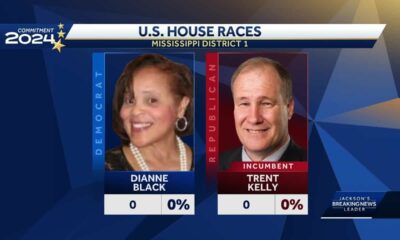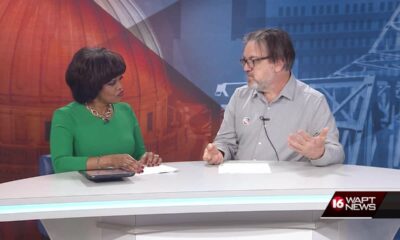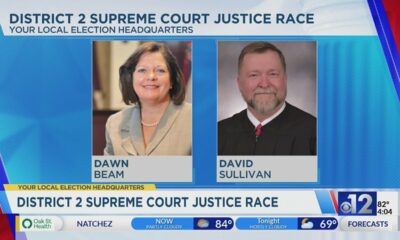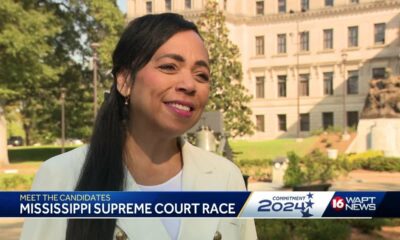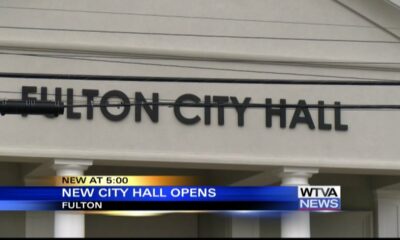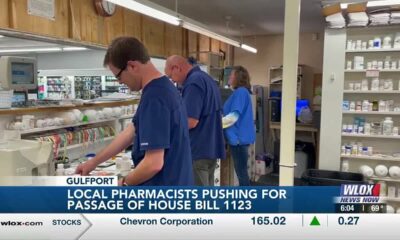Mississippi News
Does Constitution allow spending public dollars on private schools?
Lawmakers spent public money on private schools. Does it violate the Mississippi Constitution?
This past session the Mississippi Legislature gave $10 million to K-12 private schools even though the state constitution appears to be one of the few in the nation to prohibit the practice of providing public money to private schools.
Mississippi is among the 37 states that have so-called “Blaine Amendment” constitutional provisions that ban the expenditure of public funds for private, religious schools. But Mississippi takes that provision a step further: its 1890 Constitution appears to prohibit the expenditure of public funds at any private school.
“No religious or other sect or sects shall ever control any part of the school or other educational funds of this state; nor shall any funds be appropriated toward the support of any sectarian school, or to any school that at the time of receiving such appropriation is not conducted as a free school,” Section 208 of the Mississippi Constitution reads.
Despite the language, the Legislature in recent years has both appropriated funds to private schools and provided tax credits to those who contribute to private schools.
During the recently completed session, the Legislature appropriated $10 million in federal American Rescue Plan Act funds to private schools. The legislation created a debate in both the House and Senate with a bipartisan group of senators stopping the proposal until leadership was able to garner the votes to pass it.
Senate Accountability, Efficiency and Transparency Chair John Polk, R-Hattiesburg, told his colleagues who were opposed to the public funds going to private schools that the private schools had been impacted by COVID-19 and needed help to improve their infrastructure with the federal funds.
“We want to make sure they have some ability to improve their conditions,” he said.
During the lengthy debate of the legislation, though, no one brought up Section 208.
READ MORE: Legislature gives $20 million in pandemic relief funds to private schools, colleges
“We believe public money should be spent on public schools,” said Brandon Jones, an attorney and director of political campaigns and policy for the Southern Poverty Law Center Action Fund. “There are a lot of folks working hard against that idea. This appropriation is part of a coordinated effort by special interest groups and politicians to redirect public dollars to private schools.”
As far as Section 208, Jones said, “Our state constitution has prohibited the use of public dollars for private schools for years, but those types of protections are under attack across the country. As an example, there is a case from Maine that is in front of the U.S. Supreme Court right now that could make it even easier for politicians to send public money to private schools.”
That Maine case — Carson vs. Makin — involves state law, not the constitution. Maine law allows students to access public funds to attend private school in certain rural areas. But the law prohibits the public funds from being used at religious schools.
The argument before the Supreme Court, according to SCOTUSblog, is “whether a state violates the religion clauses or equal protection clause of the United States Constitution by prohibiting students participating in an otherwise generally available student-aid program from choosing to use their aid to attend schools that provide religious, or ‘sectarian,’ instruction.”
Earlier the Supreme Court ruled in a case from Montana (which does have a provision in its constitution preventing the expenditure of public funds at religious schools) that if money was being provided to non-religious private schools, it also had to be given to religious schools.
The difference between Montana and Mississippi is that the Mississippi Constitution seems to also prohibit providing public funds to all private schools — whether religious or not.
“Mississippi’s Constitution clearly prohibits the appropriation of funds to any private school,” said Nancy Loome, executive director of the Parents Campaign, a public school advocacy group. “The Legislature in recent years has routinely flouted this constitutional mandate, sending taxpayer dollars to private academies while intentionally underfunding the public schools for which the Legislature is responsible.”
South Carolina, like Mississippi, has a clause in its constitution prohibiting the expenditure of public funds at both religious and non-religious schools.
Just as it did with the federal American Rescue Plan Act funds, Mississippi in 2020 provided federal Coronavirus Aid, Relief and Economic Security Act funds to private schools. In South Carolina, the issue of providing public CARES Act funds to private schools was the subject of a lawsuit.
In 2021, a federal judge ruled the South Carolina Constitution prohibited providing federal CARES Act funds to private schools. The judge ruled that the state constitution did not discriminate against religion because it prohibited public funds to all private schools.
The language in state constitutions banning the funding of religious schools is traced back to James Gillespie Blaine, the Republican minority leader of the Maine House of Representatives. He advocated for an amendment to the U.S. Constitution preventing public funds to religious schools. Efforts to place the language in the U.S. Constitution narrowly lost, but through a national movement similar language was added to many state constitutions in the 1800s.
Supporters of school vouchers argue that the language in the state constitutions banning public funds to private schools is discriminatory. The amendments, many believe, was aimed originally at Catholic schools. Many Catholics argued that they were discriminated against in the public schools.
Loome argues that preserving public funds for public schools is far from discriminatory.
“During and following integration in the 60s and 70s, lawmakers diverted much-needed funding and resources away from public schools and into private segregation academies,” she said. “It was wrong then, and it is wrong today. The public’s funds belong in the public’s schools, and our constitution makes that plain. “
She added, “The private schools that are getting millions of taxpayer dollars have no accountability for the expenditure of public funds. Public schools are held accountable publicly, with ratings and test scores, and publicly available data. If private schools operate in private, as is their right, they should do so solely with private funds.”
Others argue that parents should have the right to spend their tax dollars on a school of their choice.
This article first appeared on Mississippi Today and is republished here under a Creative Commons license.
Mississippi News
Ole Miss women get pair of double-doubles and roll to 83-65 March Madness win over Ball State
SUMMARY: Mississippi coach Yolett McPhee-McCuin found solace in returning to a different arena in Waco, Texas, following a disappointing previous tournament experience. The No. 5 seed Ole Miss Rebels redeemed themselves with an 83-65 victory over 12th-seeded Ball State in the NCAA Tournament’s first round. Starr Jacobs led the Rebels with 18 points and 11 rebounds, while Kennedy Todd-Williams and Madison Scott each scored 15 points. Ole Miss dominated rebounding, leading 52-32, and will face fourth-seeded Baylor next. Coach McPhee-McCuin noted the team’s evolution since their last visit and the significance of playing in Texas, where Jacobs feels at home.
The post Ole Miss women get pair of double-doubles and roll to 83-65 March Madness win over Ball State appeared first on www.wjtv.com
Mississippi News
Events happening this weekend in Mississippi: March 21-23
SUMMARY: This weekend (March 21-23), Mississippi offers a range of exciting events. Highlights include Hal’s Marching MALfunction Second Line Stomp and Jessie Robinson’s blues performance in Jackson, as well as the Natchez Food & Wine Festival and the Natchez Little Theatre’s production of *This Side of Crazy*. There are also numerous exhibitions like *Of Salt and Spirit: Black Quilters in the American South* in Jackson and *Gold in the Hills* in Vicksburg. Other events include the 48th Annual Crawfish Classic Tennis Tournament in Hattiesburg, karaoke nights in Laurel, and a variety of family-friendly activities across the state.
The post Events happening this weekend in Mississippi: March 21-23 appeared first on www.wjtv.com
Mississippi News
Events happening this weekend in Mississippi: March 14-16
SUMMARY: This weekend (March 14-16) in Mississippi offers a variety of events. In Jackson, iconic saxophonist Boney James performs at the convention center, while the JXN Food & Wine festival showcases culinary talents. The LeFleur Museum District hosts a “Week of Wonder,” and several exhibitions, including “Of Salt and Spirit,” celebrate Black quilters. Natchez features the Spring Pilgrimage tours, a reenactment of Annie Stewart’s story, and a St. Patrick’s Day celebration. In Hattiesburg, comedian Rob Schneider performs, and various events like a St. Patrick’s Day pub crawl and a talent show will take place throughout the area.
The post Events happening this weekend in Mississippi: March 14-16 appeared first on www.wjtv.com
-

 Local News Video7 days ago
Local News Video7 days agoLocal pharmacists advocating for passage of bill limiting control of pharmacy benefit managers
-

 News from the South - Florida News Feed5 days ago
News from the South - Florida News Feed5 days agoFamily mourns death of 10-year-old Xavier Williams
-

 News from the South - Alabama News Feed6 days ago
News from the South - Alabama News Feed6 days ago1 Dead, Officer and Bystander Hurt in Shootout | March 25, 2025 | News 19 at 9 p.m.
-

 News from the South - Arkansas News Feed7 days ago
News from the South - Arkansas News Feed7 days agoReport: Proposed Medicaid, SNAP cuts would cost Arkansas thousands of jobs, $1B in GDP
-

 News from the South - North Carolina News Feed7 days ago
News from the South - North Carolina News Feed7 days agoClassmates remember college student hit by car, killed near NC State
-

 News from the South - Alabama News Feed4 days ago
News from the South - Alabama News Feed4 days agoSevere storms will impact Alabama this weekend. Damaging winds, hail, and a tornado threat are al…
-

 News from the South - Alabama News Feed3 days ago
News from the South - Alabama News Feed3 days agoUniversity of Alabama student detained by ICE moved to Louisiana
-

 News from the South - Oklahoma News Feed7 days ago
News from the South - Oklahoma News Feed7 days agoRep. Tom Cole Says DOGE Is ‘Pretty Responsive’ to His Concerns

